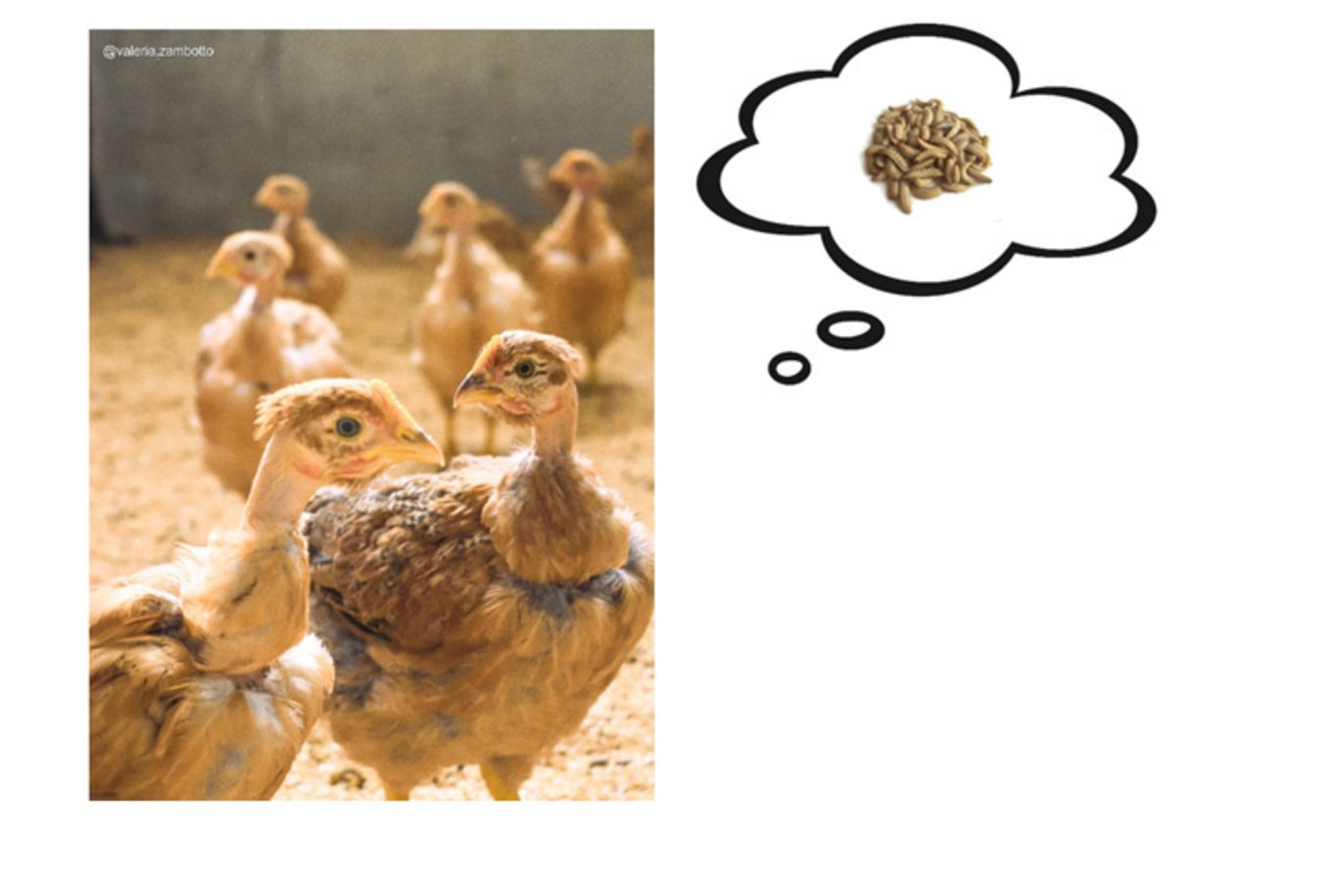Live black soldier fly larvae and animal welfare: The floor to the chickens
What about the live insect larvae administration effect on chickens’ welfare? Thanks to the POULTRYNSECT project, new discoveries and insights never studied before are available about slow-growing hybrids.

Nowadays, the animal welfare represents one of the main drivers towards consumers’, and often discussed on various communication channels such as social media, with a huge impact on people’s perspective of commercial farms. Moreover, welfare of medium-growing hybrids in organic and free-range farms is often underestimated and taken for granted, whereas ameliorations could be provided, improving the living conditions of such animals.
The most valid tools to improve chickens’ welfare are enclosed in management practices and the environment in which the birds live. Environmental enrichments surely enhance the birds’ capability of satisfying their natural behavioral repertoire, and the live insect larvae represents the most effective substrate by virtue of their motility.
Objectives and methods
The research part of the POULTRYNSECT project aimed at providing information on the welfare status and behavioral effects related to black soldier fly live larvae provision on a medium-growing genotype, the Label Naked Neck.
A total of 240 male (M) and female (F) birds were allocated in 24 pens according to gender and diet, to obtain 4 treatments (control= CM and CF, and supplemented with larvae= LM and LF), with 10 birds/pen and 6 replicates/treatment. Both the LM and LF received the 10 percent live larvae based on the daily feed intake.
During the trial, which lasted from 28 to 82 days of age, various parameters were considered: feather condition (score 0–5), footpad dermatitis (score 0–4), skin and breast lesions (score 0–2). Furthermore, fecal samplings were collected for the corticosterone analyses related to stress and some fear related test performed: tonic immobility (3 min × 3 attempts) and avoidance distance test (bird operator closeness after 10 seconds). Finally, some videos were recorded to observe the animal behaviors (5 min × 3 times/day × 3 days).
Results
The live black soldier fly larvae positively affected the exploratory behavior and reduced animals’ fear as well, as it has been previously reported in both broiler chickens and laying hens.
Moreover, an increased foraging activity of the birds has been observed, especially at the end of the rearing cycle, confirming the previous findings published on broiler chickens.
These preliminary results have been already presented at the European Symposium on Poultry Welfare (ESPW) 2023, held last 26–29 June in Prague, Czech Republic while full data has been sent to a scientific journal for a possible publication.
Relevant link
Authors info
Valentina Bongiorno, Department of Veterinary Science, UNITO, Italy - valentina.bongiorno@unito.it
Valeria Zambotto, Department of Veterinary Science, UNITO, Italy - valeriazambotto@gmail.com
Achille Schiavone, Department of Veterinary Science, UNITO, Italy - achille.schiavone@unito.it
Francesco Gai, Institute of Sciences of Food Production, CNR, Italy - francesco.gai@ispa.cnr.it